Digital Prosthetics
Issue
There are many environmental and social issues in the world, but too often we feel powerless about them.
Proposition
This project is as much about the skill set, as much as the mind set: empower the students to identify issues, have empathy, design for impact, prototype, test, iterate, learn and share. A full Design Thinking process applied to a real world issue: an amputated dog.
We were utterly charmed when we saw how hard these inspiring young students from the progressive Harbour School (THS) worked on improving an elderly disabled dog’s quality of life.
The pupils, aged 15 to 16, built a prosthesis for the three-legged dog as part of a four-day workshop led by inventor Cesar Harada, who founded the local makerspace MakerBay and often collaborates on classes with THS.
“It was supposed to be about 3D printing, which there was some of,” Harada told Coconuts Hong Kong. In line with his interest in what he calls “impact invention”, he intended for the students to “3D print for a purpose”.
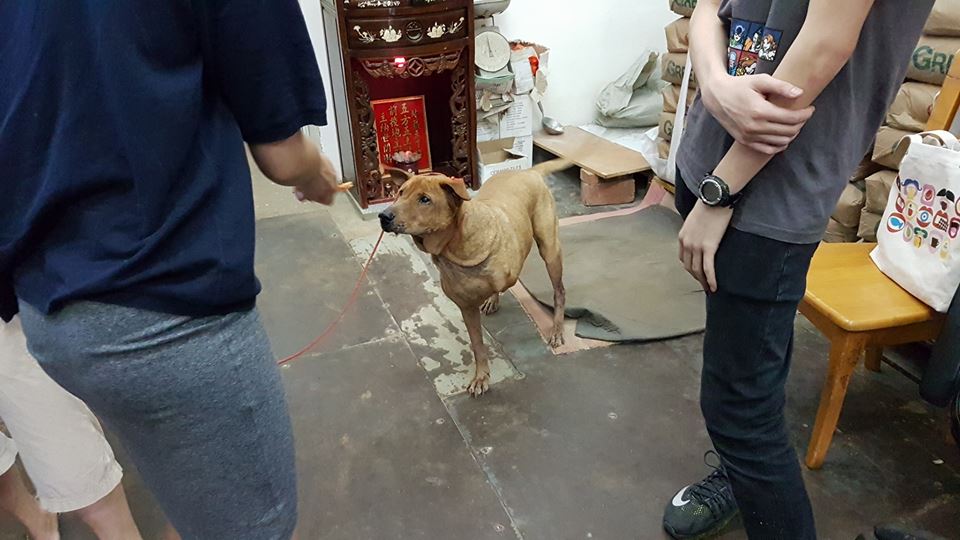
After a little discussion, the students settled on using their resources to help a handicapped animal – specifically, an old dog belonging to the owner of a construction supplies shop in Aberdeen.
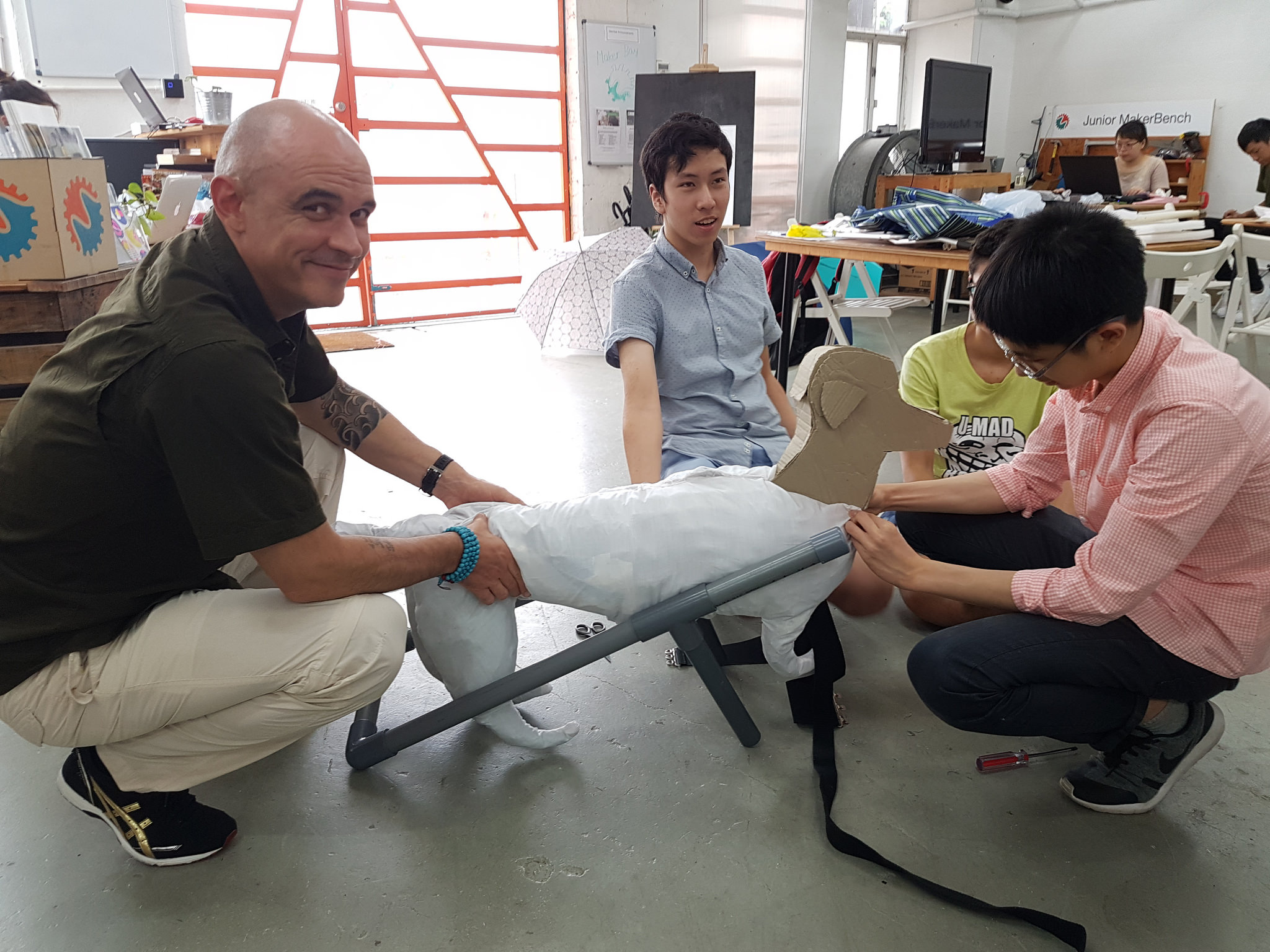
For four days, the students gathered at the Yau Tong makerspace to design and build an apparatus somewhat akin to a pet mobility cart. While there were a few 3D-printed components, the device ended up being comprised of a PVC tube frame, stretchy straps (safety first!), and a pair of wheels from a repurposed trolley to help the dog roll around with ease.
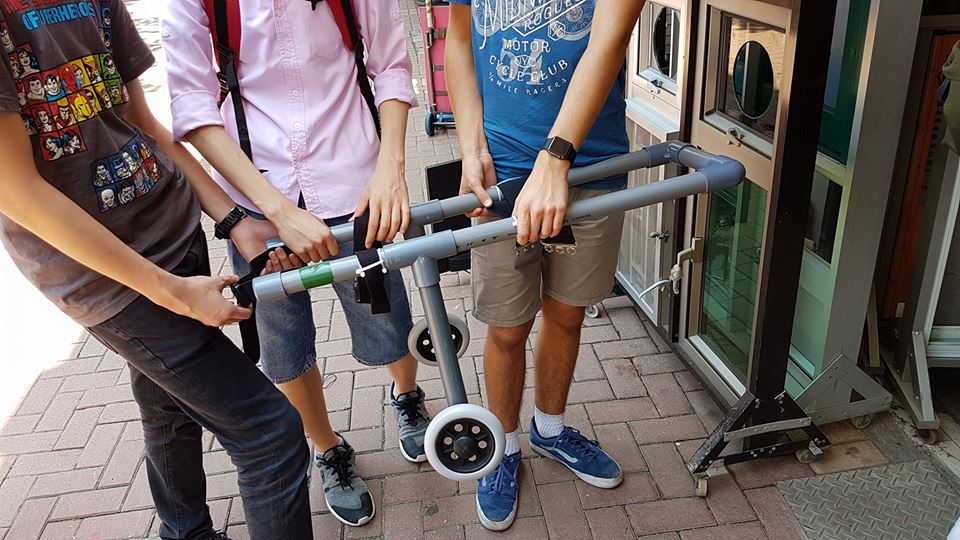
After assembling the contraption and testing it on a model, the intrepid young inventors went to try out their creation on the handicapped hound.
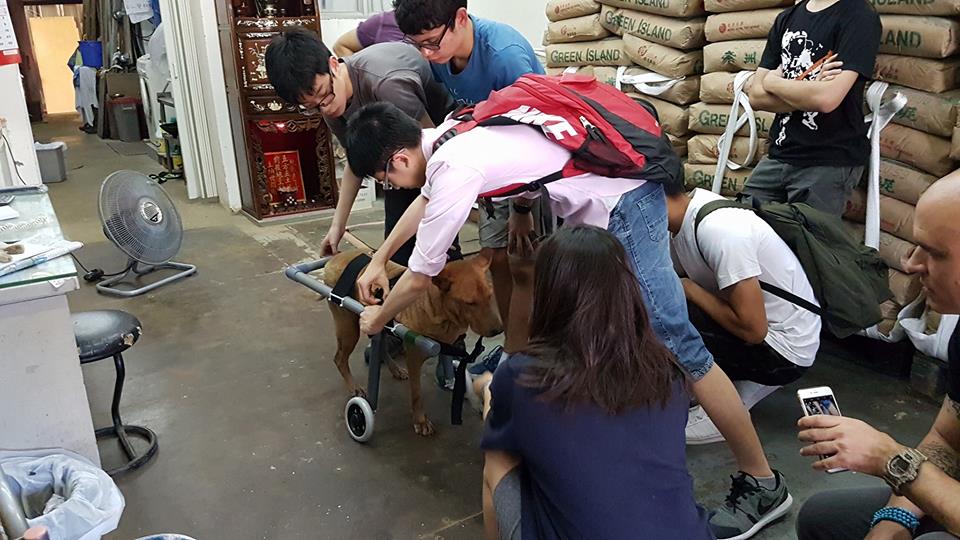
Unfortunately, as is often the case with a first attempt, there were some minor issues – like some of the measurements being slightly off, and the dog not being able to support itself. “He has been handicapped for a long time and his muscles are very weak,” Harada explained. In addition, the dog’s owner said he might be “too scared” to use the frame, suggesting it was too unwieldy compared to a prosthetic leg.
While some of the students seemed a little disheartened that the dog didn’t immediately take off running (or rolling), Harada later stressed, “The process of prototyping is long and hard.”
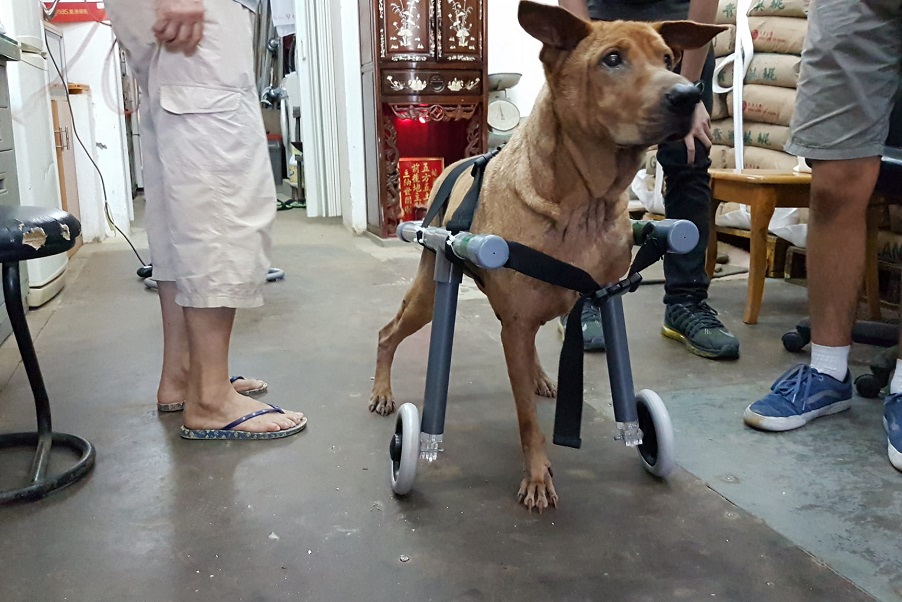
Despite the workshop having ended, Harada has encouraged the students to keep working on the prototype at his workspace, free of charge.
“I really hope they come back,” he told us. In addition, the inventor has extended an open invitation to “anyone in Hong Kong who has either handicapped pets or that is interested in building animal prosthetics to come to MakerBay.”

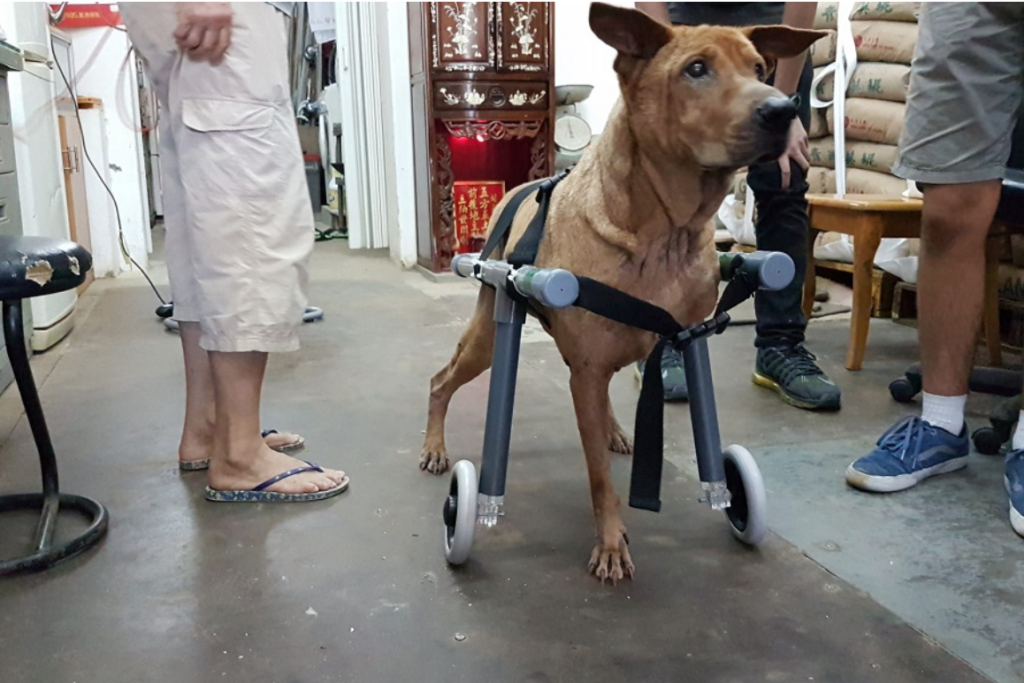

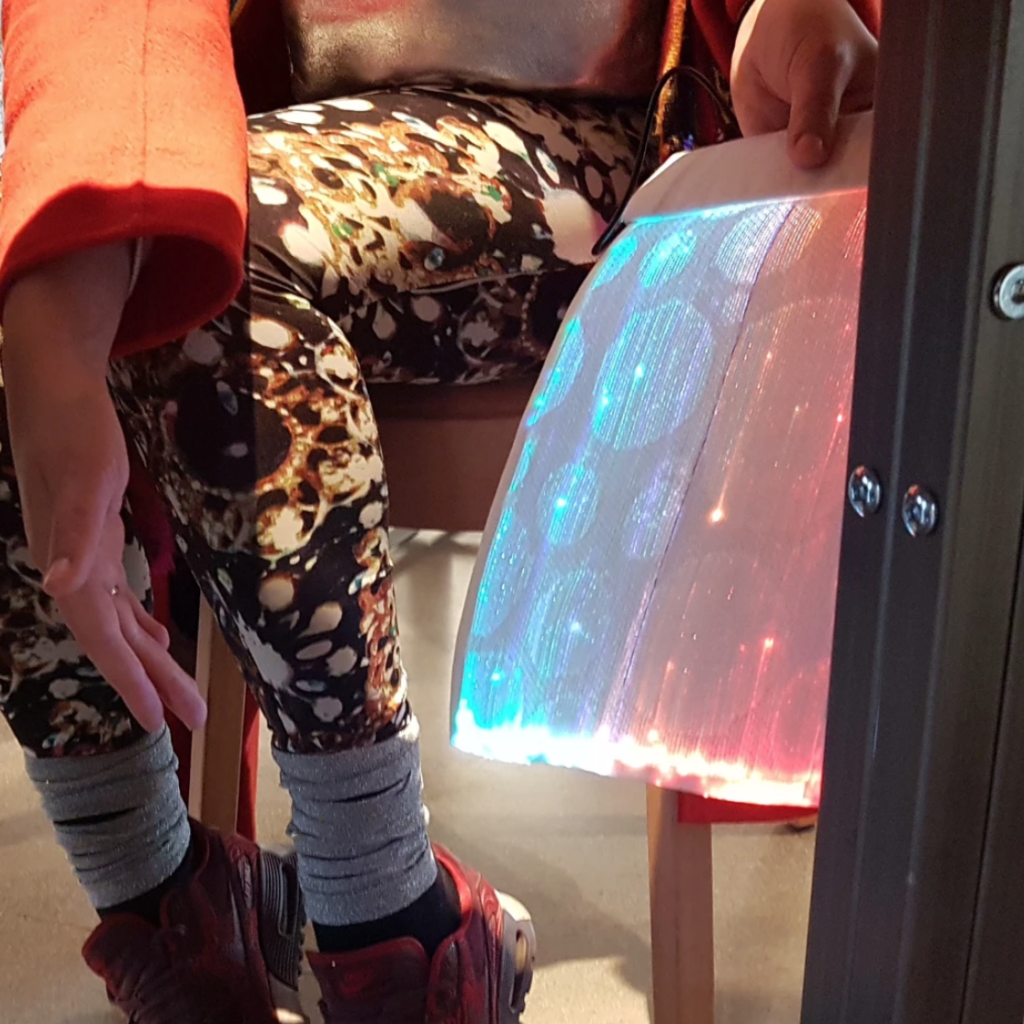



Responses